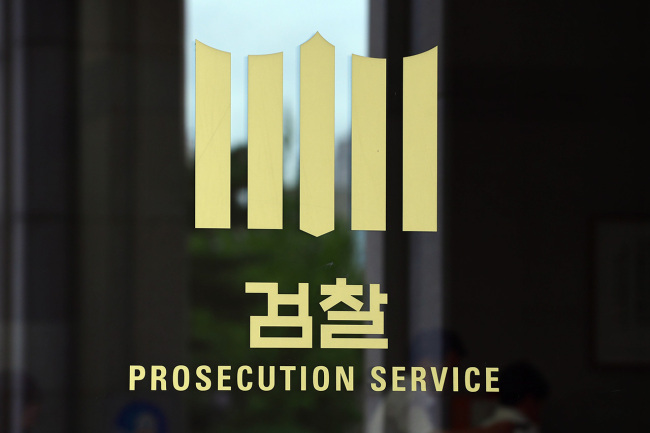The Peninsula
Lessons from Korea’s Struggle to Reform its Prosecutors’ Office
Published July 17, 2020
Category: South Korea

By James Constant
While competing bills for national police reform appear stalled in a divided U.S. Congress, South Korea’s long-awaited overhaul of its law enforcement system appears closer than ever to becoming reality. The push by the Korean government to curb the authority of the prosecutors’ office can provide a useful lens to examine current efforts in the United States to abolish or reform the police. Following the Korean model, U.S. reformers should clearly identify national or local institutions that can assume some of the authorities currently held by the problematic institution – and advance legislation to devolve powers with the maximum political mandate.
Korean prosecutors have long served as the country’s most powerful law enforcement agency, far eclipsing the power of its peers in most other countries. They hold the sole power to investigate and indict suspects, with the police directly subservient to their authority.
Similar to the police in the United States, a significant segment of the Korean population distrust prosecutors. Several key incidents have led to the institution losing the public’s confidence. Last year, the prosecutors’ office admitted to systematically obstructing investigations into a forced labor camp in Busan where hundreds of people died and were tortured during the authoritarian rule of President Chun Doo-hwan in the 1980s.
President Moon Jae-in’s mentor, former President Roh Moo-hyun, attempted to reform the institution in the mid-2000s. After his term in office, Roh committed suicide during a corruption probe led by prosecutors, which many progressives see as having been politically motivated. Scholars have also argued that “since the transition to a formal democracy in 1987, the public prosecution service has been a source of some of the most serious impediments to the development of democratic quality as measured by the criterion of rule of law.”
In response, Moon and the ruling Democratic Party have advanced efforts to redistribute the prosecution’s powers. Although the drive for reform looked badly battered – especially amid scandals involving his former Justice Minister, which dropped Moon’s approval ratings to an all-time low of 39 percent – the ruling party’s landslide victory in the April legislative elections mobilized sufficient political capital to finalize the reforms.
The Korean prosecution reform plan involves moving much of the prosecution’s investigative responsibility to the police and establishing a new agency focused on investigating government corruption. In order to prevent the police from abusing their newfound authority, the now-centralized National Police Agency’s powers will be partially shifted to local control.
This idea of shifting power from the discredited institution to a new organization or one with a better reputation has a clear parallel in the American police reform movement. The call for police defunding in the United States is broadly accompanied by calls for reinvestment in mental health and anti-homelessness programs, education and other social services – in short, devolving more social responsibility to other institutions better suited to address prominent social woes.
Just as prosecution reform in Korea is principally driven by progressives, opinions around police reform in the United States are divided along partisan lines. A June ABC News/Ipsos poll found that while 55 percent of U.S. Democrats supported the movement to defund the police and 59 percent supported redirecting money to other social services, 89 percent of Republicans opposed defunding police and 86 percent were against redirecting funds. As a result, the divided legislature will have difficulties advancing reforms, with neither able to garner significant bipartisan support.
Similarly, Korean conservatives launched an all-out assault last year on the Democratic Party’s reform drive, occupying the National Assembly, holding hunger strikes, and filibustering to prevent the passage of key bills. They also looked to remove the justice minister appointed by President Moon. A KBS poll from late 2019 showed support for prosecution reform was highest in the progressive-leaning Jeolla region, while the traditionally conservative southeastern Gyeongsang provinces showed the most opposition.
However, the overwhelming victory of Korea’s Democratic Party in the April legislative elections has given the liberals a strong mandate to follow through on prosecution reform and bypass conservative opposition. The passage of any remaining bills now looks like a mere formality, and the Democratic Party announced on June 29 that it would push ahead with the creation of its new anti-corruption office in July with or without cooperation from other parties.
If one party wins the presidency and a commanding legislative majority in the U.S. elections this November, then it’s not difficult to imagine police reform measures becoming similarly inevitable. Both U.S. parties have already clarified their priorities in the competing House and Senate reform bills – what’s necessary is a broader legislative mandate on either side.
The Korean example indicates that while robust reform of a flawed law enforcement system is possible, it is dependent on the consolidation of power by the ruling party and the careful selection of institutions that will be in charge of the prosecution’s former powers. Whether the United States will follow the Korean lead looks to be dependent on the November elections and the clear delineation of which organizations can take responsibility for some duties currently handled by the police.
James Constant is an intern at the Korea Economic Institute of America. He is an MA candidate in East Asian Studies at Leiden University. The views expressed here are the author’s alone.
Picture from an article published in The Investor on July 10, 2017
